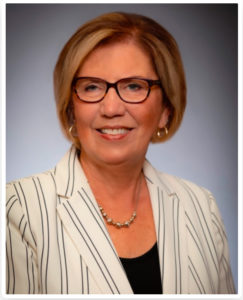By Pat Griffey
I’ve worked closely with Medicare beneficiaries in our state for years, helping seniors navigate Medicare Part D to find affordable drug coverage that works for them. This means that I have often partnered with pharmacy benefit managers (PBMs) to secure the best possible prescription drug benefit options possible for my clients and business. But now, “drug pricing reform” proposals supported by Big Pharma threaten to dismantle a source of serious prescription drug savings for our seniors. This isn’t sound policy, but an agenda pushed by Big Pharma to move billions into their pockets at the expense of Medicare beneficiaries.
PBMs play an essential role in saving money on prescription drugs for health plan sponsors, including Medicare Part D beneficiaries. PBMs negotiate directly with pharmaceutical companies, securing rebates and discounts that lower costs for patients and health plans. The work done by PBMs saves Medicare beneficiaries and health plan sponsors an average of $1,040 per person each year. By working on behalf of health plans and patients, PBMs act as the only real check on Big Pharma’s pricing power, and without their support many seniors would struggle to afford their prescriptions or even be forced to skip essential medications. This isn’t the kind of health care system we want, and must protect the vital role PBMs play.
Now, however, Big Pharma seeks to push its so-called “drug pricing reform” agenda, which would strip PBMs of this negotiating power, handing it over to manufacturers with more profits and even more power. One Big Pharma-backed proposal, called “delinking,” would destroy performance-based incentives for PBMs to secure more rebate savings from drug manufacturers. If implemented, these changes would lead to billions of dollars in increased premiums and out-of-pocket costs for seniors on Medicare Part D.
A recent study by the National Bureau of Economic Research (NBER) showed that these changes would place a $13 billion burden directly on seniors in the form of Medicare Part D. The economist who conducted the research, Casey B. Mulligan, Ph.D. concluded:
“This policy would significantly change drug pricing and utilization and shift billions of dollars annually from patients and taxpayers to drug manufacturers and retail pharmacy companies. Annual federal spending on Medicare Part D premiums would increase $3 billion to $10 billion plus any concomitant increase in Medicare subsidies for out-of-pocket expenses …The net cost of ending pay for PBM performance would be [up to] $13 billion…reflecting the fact that patients and plans lose more than manufacturers and pharmacies benefit.”
For our seniors, this would mean a massive cash grab from their pockets directly into the bottom line of big drug companies. Lawmakers focused on making a meaningful change in our health care system would not willingly advance policies that would hike costs and reward drug companies.
Indiana seniors can’t afford to pay more for essential medications. Hoosier seniors need policies that protect and expand access to affordable medications—not ones that dismantle safeguards to out of control pricing by pharmaceutical companies. Congress must reject these Big Pharma-backed policies and support the tools PBMs use to keep costs in check. If we don’t, it’s senior who will pay the price.
Pat Griffey is a small business owner in Elkhart, Indiana.












